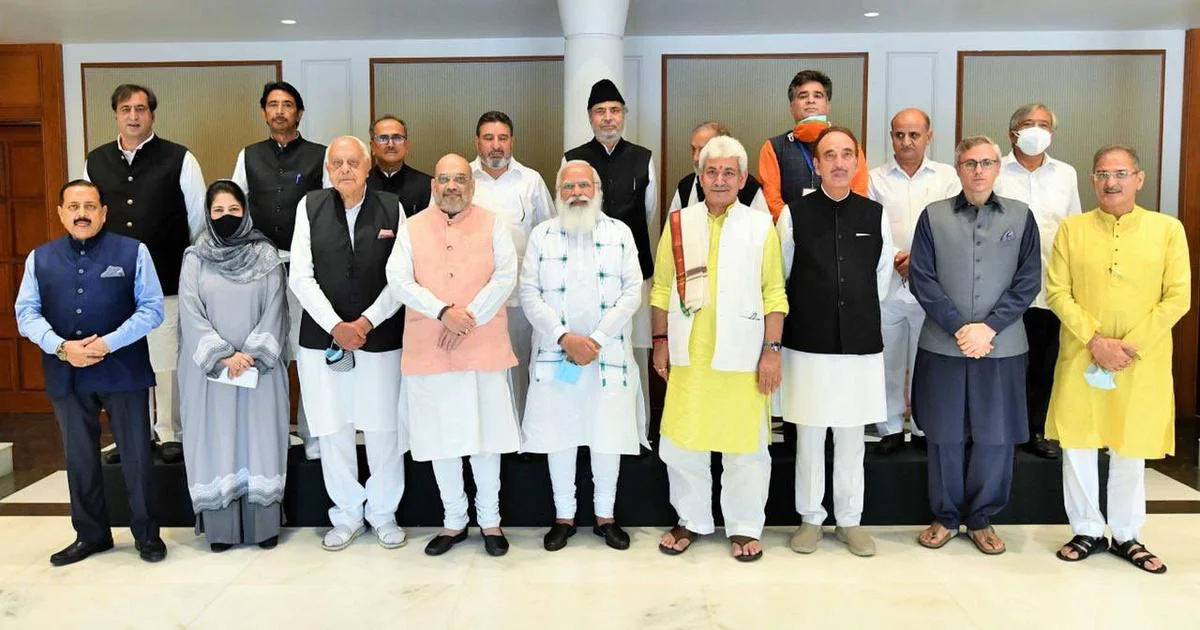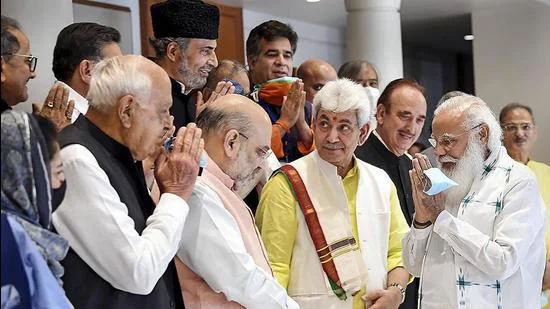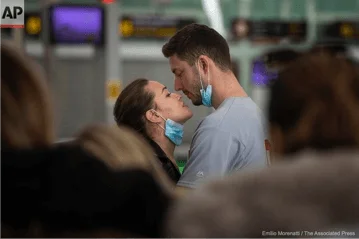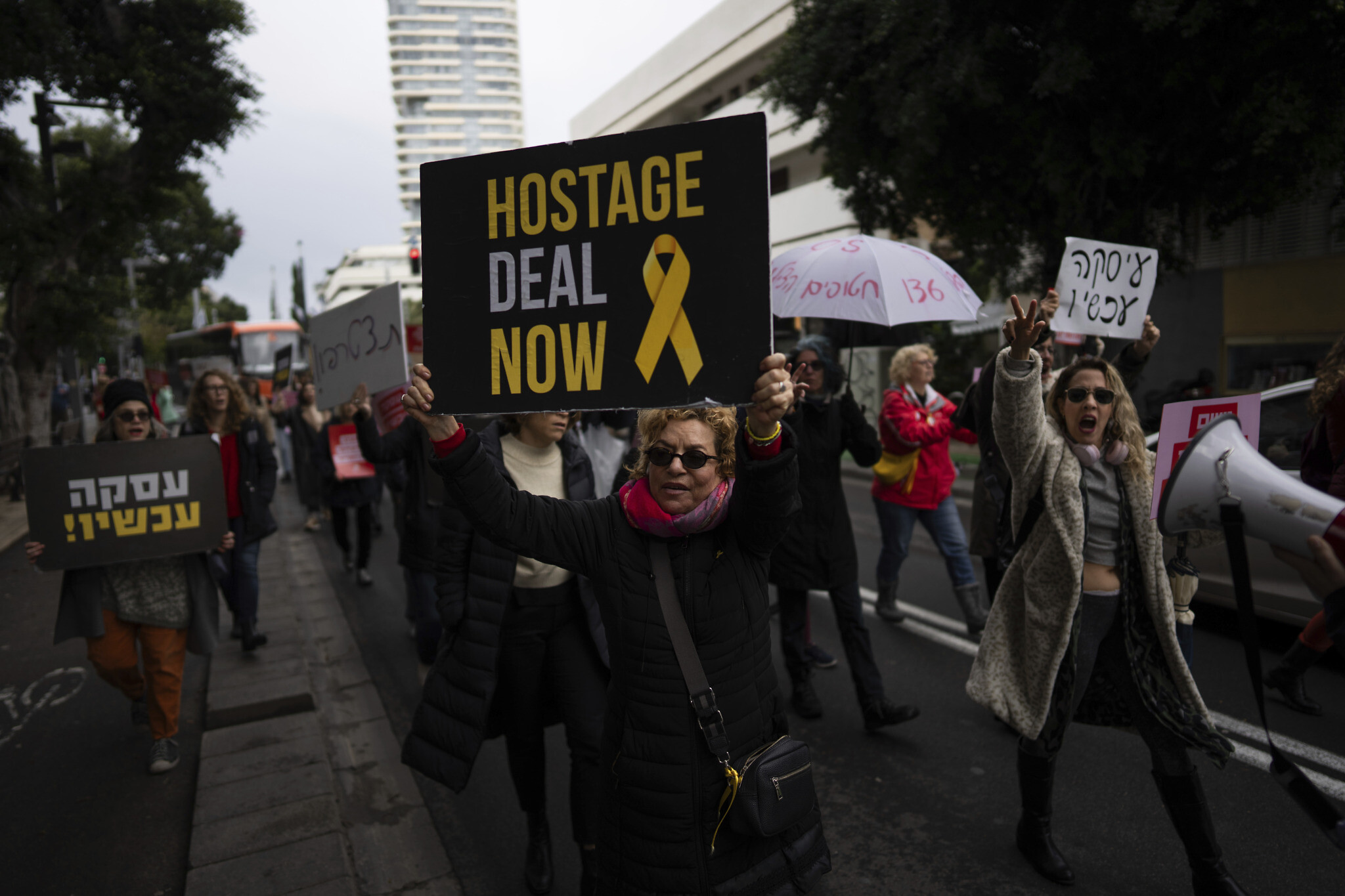Trump's Battle To Be On US President’s Ballot, 'Trump Versus Anderson' In The Us Supreme Court


On 24 June, 2021, PM Modi held a 3 hour long meeting with 14 Kashmiri political leaders among whom were 4 former Chief Ministers of Jammu & Kashmir( J & K). The day was carefully chosen since it coincided with the death anniversary of an emotively inspiring figure for the Bharatiya Janata Party, and founder of the Bhartiya Jan sangh the late Shyama Prasad Mookerjee. Cutting back to 1953 on this day, Shyama Prasad Mookerjee had died in a J & K prison agitating against the special status granted for J& K under Article 370 and Presidential orders under Article 35A of the constitution. Delhi Darbaris are claiming that this is an indication of a change in Government of India’s policy and approach towards J & K politics necessitated by dynamic socio-economic happenings and forseeable changes in the geographic region. This meeting by the PM created a stir in India and became a talking point internationally though the general perception is that it failed to achieve anything concrete except that it did open a dialogue between Government of India (GOI) and J & K’s political leaders and parties for the first time since the current federal government came to power in 2014.
The statements issued thereafter by the various leaders who attended this meeting clearly indicate that they raised the issue of scrapping of J & K’s special status by GOI in 2019. These leaders did demand restoration of Statehood and special status for J & K but the GOI did not give any specific commitment.
Former Chief Minister Mehbooba Mufti stated publicly that “The way Article 370 was illegally and unconstitutionally abrogated on August 5, 2019, is not acceptable to the Kashmiri people. We will continue to fight for the restoration of of special status through legal and constitutional means”. People’s Conference leader Sajjad Lone said the meeting was held in a very cordial manner. “ We came out quite positive that hopefully there will be some delivery for the people of Kashmir,” he added.
Former Chief Minister Omar Abdullah said that the leaders told Prime Minister that they didn’t stand with what was done on 5th August 2019. “We are not ready to accept it. But we won't take law into hands. We will fight this in court. We also told Prime Minister that there’s been breach of trust between the State and the Centre. It’s Centre’s duty to restore it”. In the meanwhile Pakistan’s Foreign Minister Shah Mahmood Qureshi in an obvious reaction described PM Modi’s meeting with top leaders from J & K as a ‘drama’ and a ‘PR exercise’.

What is PM Modi aiming at ?
It is being indicated that certain recent critical geo-political considerations are the trigger for Modi’s move to engage with Kashmiri political leaders. It is obvious that U.S. troops are withdrawing from Afghanistan and the Taliban is gaining control of Afghanistan steadily. President Biden’s decision of withdrawing troops will have consequences for U.S., Afghanistan and also the Asian nations within the region. To say that Taliban’s taking over of Afghanistan will not affect India would be not only naive but irresponsible too. Also the instant circumstances require that tensions between Pakistan and India be addressed. Various reports suggest that Modi's government is even trying to establish communication with Taliban leaders. Rezaul H. Laskar, on June 9, 2021, wrote in Hindustan Times that "India has for the first time opened channels of communication with Afghan Taliban factions and leaders, including Mullah Baradar, against the backdrop of the rapid drawdown of US forces from Afghanistan, people with knowledge of the development have said". "The move makes a significant shift from New Delhi's position of not engaging with the Afghan Taliban in any way and comes at a time when key world powers are veering around to the position that the Taliban will play some part in any future dispensation in Kabul", added Rezaul H. Laskar. [ "In A Huge Shift, India Opens Channels With Afghan Taliban Factions & Leaders", Hindustan Times Link - https://bit.ly/2V3KyJv]. The supporters of Modi government claim that the ceasefire at the Line of Control along Kashmir, Modi Government’s new approach to Kashmir issue and Afghanistan are part of the same approach.
PM Modi had an excellent rapport with former US President Donald Trump. But he is still in the process of building bridges with America's new President Joe Biden. Modi’s initiative to organise ‘Namaste Trump’ rally in Ahmedabad has not gone well with the Democrats who believe that the rally was meant to boost Trump’s chances to clinch the Presidency for the second term. In the circumstances it would not be a great surprise if President Biden’s administration is still not comfortable with Modi government’s approach to various domestic as well as international issues.
On 30 May 2021, Pakistan’s PM Imran Khan ruled out the possibility of normalisation of relations with India, saying such a move would be betrayal to the Kashmiris. Just two days before Pakistani Prime Minister’s statement, Al Jazeera reported that on 28 May 2021 United Nations General Assembly President said that ‘India and Pakistan should “refrain” from taking steps that would alter the status of the disputed territory of Kashmir [ "India, Pakistan should not change Kashmir Status : UNGA President" - Al Jazeera Link - https://bit.ly/2URnrla ]. It is also interesting to note that Al Jazeera on 15 April 2021 had reported that, “ Top intelligence officers from India and Pakistan held secret talks in Dubai in January in a new effort to calm military tension over disputed Himalayan region of Kashmir, people with close knowledge of the matter have told the Reuters news agency”. The Al Jazeera reported that “the two governments have reopened a back channel of diplomacy aimed at a modest road map to normalising ties over the next several months”. They further mentioned that, “ The Indian foreign ministry did not respond to a request for a comment. Pakistan’s military, which controls the ISI, also did not respond. But Ayesha Siddiqua, a noted Pakistani defence analyst, said she believed Indian and Pakistan intelligence officials had been meeting for several months in other countries. ‘I think there have been meetings in Thailand, in Dubai, in London between the highest-level people, she said’. ["India, Pakistan held secret talks on Kashmir in January : Reuters" - Al Jazeera link - https://bit.ly/3Al2XBw ].
Perhaps all this may have prompted Modi to draw the world's attention especially the Biden administration to the fact that his government is striving to bring normalcy in the Kashmir valley and that they are not leaving any stone unturned to open a political dialogue with the Kashmiri leaders. The Joe Biden administration has expressed its interest in seeing normalcy being restored in Jammu & Kashmir. This explains why inspite of putting these prominent leaders of Kashmir in jail for a long period of time Modi is now keen to open a dialogue with them.
PM Modi expressed optimism about his outreach with Kashmiri political leaders by tweeting, “Today’s meeting with political leaders from Jammu and Kashmir is an important step in the ongoing efforts towards a developed and progressive Jammu & Kashmir, where all-round growth is furthered”. Whatever PM Modi may say the Kashmiri leaders are accusing Modi and his party of making demographic changes in the region to favour Jammu’s Hindu majority areas. The Kashmir valley, which accounts for nearly 60% of J & K’s population, has 46 seats in the assembly of 83 members where as Jammu has 37 seats. Newspapers are reporting that Kashmir valley leaders are skeptical that there is an attempt to grant more seats to the predominantly Hindu Jammu region. Only time will tell what the Modi government's master plan was behind his sudden initiative of an all Kashmiri leaders meet with him. These are the very same Kashmiri leaders who were imprisioned for more than a year and were infamously called the 'Gupkar Gang' publicly by the Home Minister Amit Shah. Under this backdrop the outcome of the meeting diplomacy also didn't achieve much in terms of restoring the confidence between the Kashmiri leaders and the PM. That having said a process has however begun to engage with, include and bring back the Kashmiri leaders & the people of Kashmir into the mainstream politics of India. A small step towards confidence building. While this article was being written TV news channel, 'Times Now' was airing a talk show of prominent Kashmiri leader Sajjad Lone, leader of People's Conference in conversation with news anchor Navika Kumar. He poignantly said, , "He feels very let down by the people across the country as once Kashmir held a special status. The party with the majority scrapped the statehood but downgrading them was a humiliation". The only way out to erase this deep rooted sense of anguish of Kashmiris is to engage them in dialogue. Sensitivity and flexibility on both sides will certainly augur well for the overall outcome of the new approach adopted by the PM Modi and his government. And who knows. The recent, "chai pe charcha'' may just be a game changer in ending years of strife, mistrust, hate and anger of the Kashmiris against the rest of India.


































